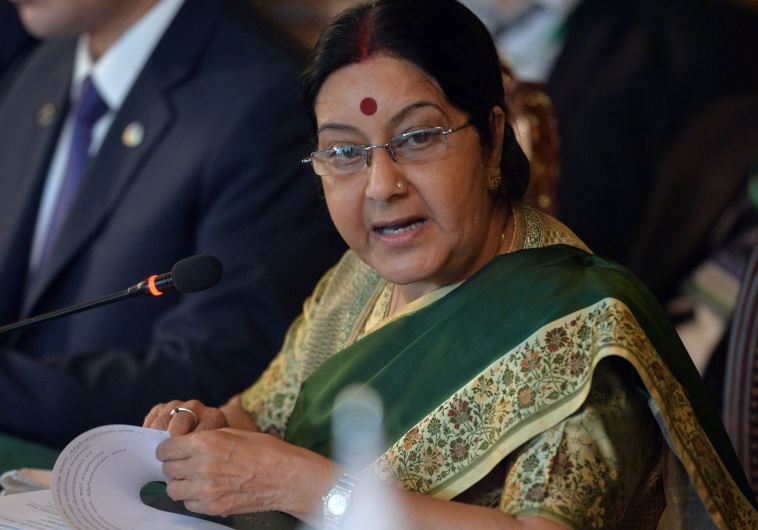Indian FM’s pre-visit statements show Israel-Muslim world balancing act
India walks a careful path between wanting to encourage ties with Israel, but at the same time not alienating the Arab and Muslim worlds.
 Indian External Affairs Minister Sushma Swaraj(photo credit: AAMIR QURESHI / POOL / AFP)Updated:
Indian External Affairs Minister Sushma Swaraj(photo credit: AAMIR QURESHI / POOL / AFP)Updated: